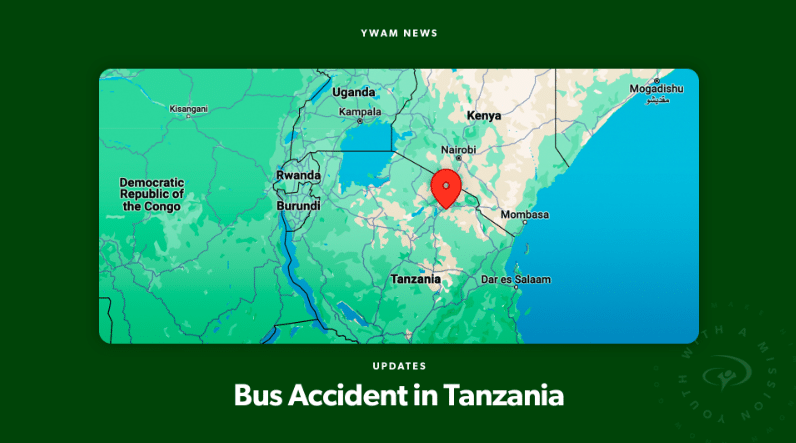After a near-fatal car accident, acclaimed author Philip Yancey lives by three basic questions
by Tan Huey Ying // October 20, 2019, 6:00 am
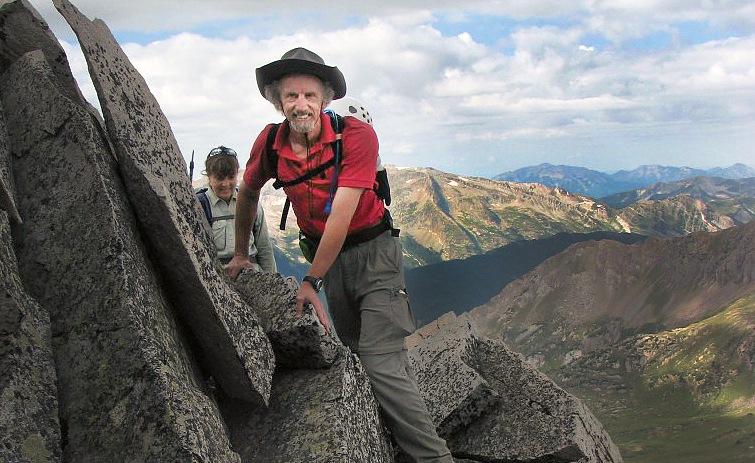
Before his accident, Christian author Philip Yancey had scaled 51 of the 54 mountains above 14,000 ft in Colorado. In 2007, after he recovered, Yancey climbed the remaining three mountains. This was one of his first climbs on Sunshine Peak, which barely made the cut at 14,001 feet. All photos from Philip Yancey's website unless otherwise stated.
“If your artery has been punctured, you won’t make it to surgery, so here’s a phone. Call the people you love and tell them goodbye, just in case,” a doctor on duty told Christian author Philip Yancey, who was strapped to a body board in the emergency department of a small rural hospital in America after a car accident.
In the early morning of February 25, 2007, Yancey was driving home after a speaking engagement when his SUV fishtailed and slipped off the icy road in Colorado, rolling sideways down an embankment.
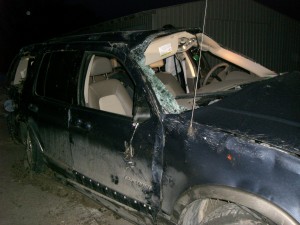
This was what was left of Philip’s Ford Explorer after the accident. The SUV rolled over five times before it landed the right side up.
Yancey, who was not in obvious need of care, was left mostly unattended while awaiting the results of his CT scan. In the waiting room, he remembers doctors being busy with children who were coughing or those who had scraped their knees.
But the results were dire: He had broken his neck.
“Call the people you love and tell them goodbye.”
His C3 vertebra, near the base of his skull, had been pulverised and there were splinters in his spinal column. While his spinal cord, which is one of the three channels located in the spinal column, was unaffected, the doctors needed another CT scan to determine if any fragments had punctured his arteries.
By the grace of God, the second set of results turned out “far better” than he’d hoped for. There was no arterial bleeding and Yancey was discharged a few hours later with a neck brace that he had to wear for the next three months.
The bestselling Christian author, who is turning 70 this year, wrote about the accident in his book, What Good Is God?, which was heavily influenced by his thoughts during the seven hours he spent waiting for news.

Many roads in Colorado curve back and forth around streams, hills, and mountain passes. On the morning of Philip’s accident, he was surprised by patches of ice on the road. As he headed downhill into a began, his car began to fishtail. It eventually rolled down an embankment. Photo by Zach Miles on Unsplash.
In that book, Yancey wrote: “All of us will face death, some through a long degenerative illness like cancer and others through an abrupt accident. I had something in between, a window of time in which I lay suspended between life and non-life, with the very real possibility of death within a few minutes or hours and yet an opportunity to emerge with overwhelming good news and another chance at life.”
It’s been more than 12 years after the accident but the memories remained fresh as Yancey spoke with Salt&Light.
What were your first thoughts after hearing the news from the doctor?
My first thought was: I can’t die, I’ve got three left.
I had been climbing the mountains in Colorado, and there are 54 mountains which are over 14,000 feet (4,300 meters). And one of the cool things to do in Colorado is to climb all 54 of them. At that point, I had climbed 51 of the 54.
“My first thought was: I can’t die, I’ve got three left.”
Which is kind of ridiculous when you’re facing death. You just never know what’s going to occur to your mind at a time like that. Because of the trauma, the shock, and everything else.
When the accident happened, I was just walking around picking up things in my computer and my skis and different things that were strewn all over.
I was taken to the hospital with a little clinic, and they weren’t all that concerned either. I was strapped down for all this time, and nobody’s paying attention to me.
So I went from just being irritated to thinking: Wow, this is strange. I feel pain but, just in five minutes, I could be gone. Dead.
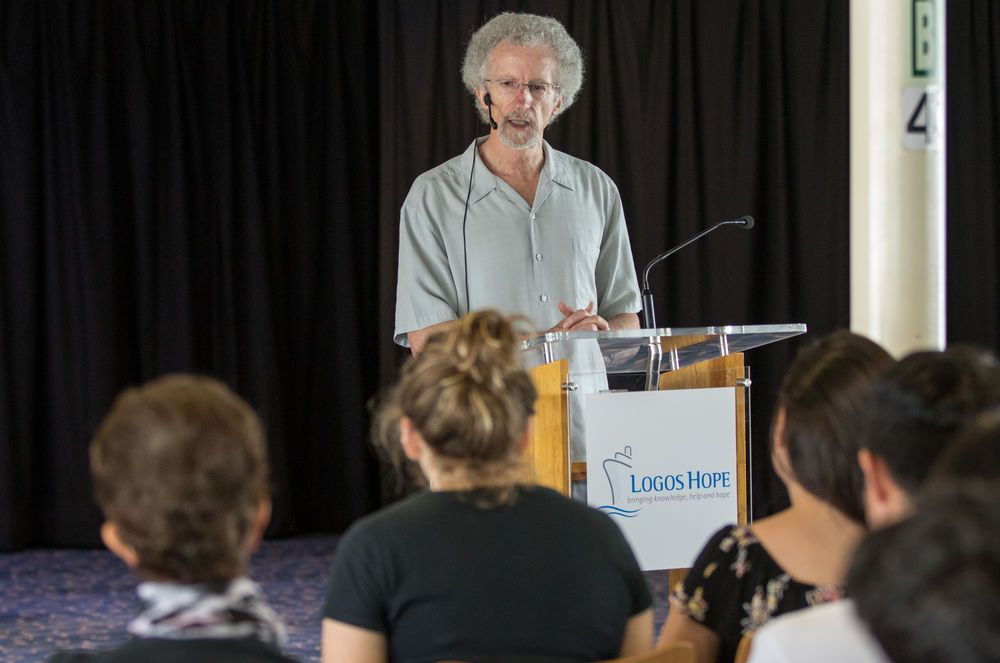
A former journalist and editor, Philip – whose bestsellers include Where is God When It Hurts?, Disappointment with God, and What Good is God? – travels extensively to speak on topics of suffering and grace. He is pictured in a seminar he gave to crew members onboard the Logos Hope, a ministry of Operation Mobilisation. Photo from Operation Mobilisation.
But then more seriously, I started thinking, I am a Christian author and I need to come up with something as my last words. If I lived to write that article, what am I learning?
This is one of those unique events where I’m facing death… possibly in the next five minutes! So what is worth spending my energy on?
In the seven hours while waiting for your wife to get to you, what were you thinking about?
The three questions that I came up with were:
Who do you love?
The doctor had said to call the people I love and tell them goodbye. Who’s on that list? Who do I love?
What have I done with my life?
Who do I love? What have I done with my life? Am I ready for what’s next?
Because it is a time when you can review and say: What do I wish was different? What should I have done that is different from what I did?
And am I ready for whatever’s next?
Because I had grown up in a fundamentalist church with a lot of hellfire and brimstone and fear of death, this angry God who dangles you like a spider over hellfire, and He’s gonna drop you in, I always thought when I faced death – even though I write about grace and believe in it – that those fears would come surging back.
But they didn’t. I was quite relaxed about the potential of dying.
And I think a lot of it is because I’ve learnt to trust God: I believe God is a God of grace, mercy, love and forgiveness. Am I ready for whatever is next? I think I was. And I trusted God with that.
And so you summarised what really matters in life – in three basic questions?
Yes, those are the three things that just jumped out at me, so much of our lives is spent on achievement and accumulating.
It’s not so different here in Singapore – I’ve seen Crazy Rich Asians – so much has to do with possessions and status, driving the right car and living in the right house and having the right handbag and clothing and all that.
It’s living in awareness of the most important things
We’re just barraged with advertisements that say: This is what matters!
Well, when you could be five minutes from death, it doesn’t matter.
Not once did I think: How many books have I sold? How much money do I have? And what kind of car do I drive? Mine was being towed to a junkyard. Couldn’t even drive it!
If you’re going to die in five minutes, it doesn’t really matter whether you have one dollar or one billion dollars. It’s irrelevant.
So, it was a wake-up call.
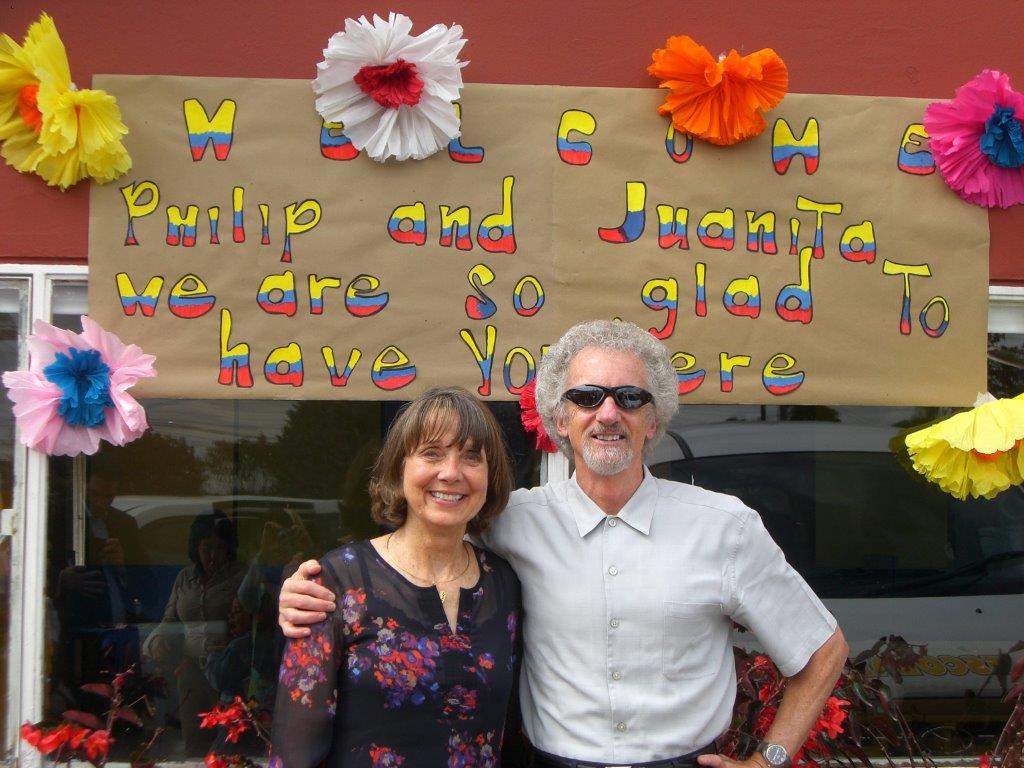
Philip and his wife, Janet, were given a warm welcome by an orphanage they visited in Colombia.
I later realised those three questions are questions that I should live my life around every day: Who do I love? And what have I done, and should be doing, with my life? And am I ready for whatever is next?
It’s living in awareness of the most important things. And for a time, I was heavily aware of that every day.
Twelve years on, has there been a slide from that awareness?
There’s a period of time I call the “days/daze of grace” – the time that I walked around in a daze while wearing a neck brace.
I was aware every day: I almost died.
And I would walk outside: Wow, grass! It’s just beautiful, look at how green it is. Look at the sky! Those clouds. So great! Like a hippie from the 1960s.
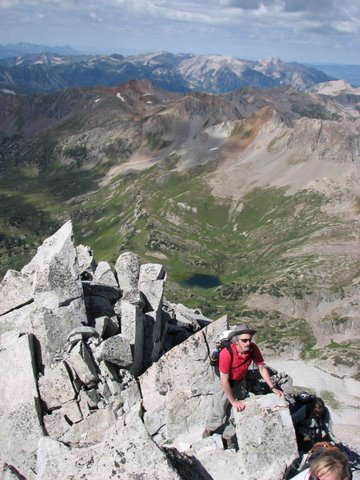
Spending time in the midst of creation is Philip’s way of “keeping company with God”. He says: “The beauties of nature, classical music, and romantic love taught me that the world is a good place, still bearing signs of its original design. God lavishes the world with beauty, a gift of grace.”
It would be great to live like that every day. But then life takes over.
The plumbing starts leaking and the deer eat my flowers. And I have deadlines. And my brother has a stroke and I have to look after him.
“It often takes a traumatic incident to make you think of things that are of ultimate importance.”
And life takes over and just pounds away at you. And just to get through the to-do list, it seems to crowd out those important things. It often takes a traumatic incident to break that day-to-day habit and make you think of things that are of ultimate importance, not just of some importance.
I live in a place of natural beauty, the state of Colorado. You have a lot (of beauty) here in Singapore. To just be reminded of the magnificent artist that God is.
And we need to force ourselves to do those things. For some people, like me, it is nature. For some people, it’s silence. It’s unplugging from mobile phones and computers and all that.
It’s important for all of us to find those “pauses”. Life will constantly keep throwing that treadmill at you and you’d be like little hamsters that keep running, so we’ll need to put enforced times to stop that treadmill.
We are an independent, non-profit organisation that relies on the generosity of our readers, such as yourself, to continue serving the kingdom. Every dollar donated goes directly back into our editorial coverage.
Would you consider partnering with us in our kingdom work by supporting us financially, either as a one-off donation, or a recurring pledge?
Support Salt&Light
